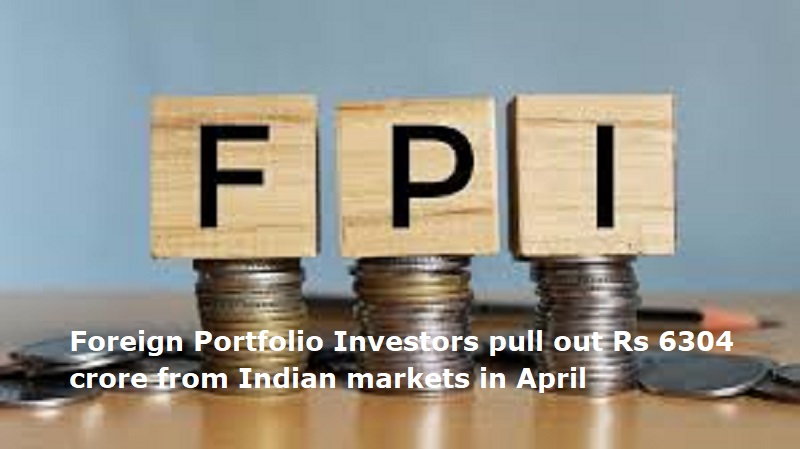
Mumbai: Foreign portfolio investors (FPIs) have tuned net sellers in Indian markets. FPIs sold Indian equities worth Rs 6304 crore this month (till April 26). FPIs withdrew Rs 10,640 crore from the debt market during the period under review.
‘The trigger for this renewed FPI selling, in both equity and debt, is sustained rise in US bond yields. The 10-year bond yield now stands at around 4.7 per cent, which is hugely attractive for foreign investors,’ V K Vijayakumar, Chief Investment Strategist, Geojit Financial Services, said.
Before this, foreign investors invested Rs 13,602 crore in March, Rs 22,419 crore in February, Rs 19,836 crore in January. Meanwhile, Foreign Portfolio Investors (FPIs) have made a net investment of around Rs 2.08 lakh crore in the Indian equity markets and Rs 1.2 lakh crore in the debt market in 2023-24 fiscal year. Collectively, they infused Rs 3.4 lakh crore into the Indian capital market.
Also Read: Village defence guard killed in shootout with militants in Jammu and Kashmir
In 2022-23, Indian equities witnessed a net outflow of Rs 37,632 crore by FPIs. Before this, FPIs pulled out a massive Rs 1.4 lakh crore. In 2020-2021, FPIs made a record investment of Rs 2.74 lakh crore.
For the entire calendar year 2023, FPIs bought Rs 1.71 lakh crore in Indian equities and the total inflow stands at Rs 2.37 lakh crore taking into account debt, hybrid, debt-VRR, and equities. FPIs’ net investment in Indian debt market stands at Rs 68,663 crore during 2023.
Indian equities witnessed a net outflow of Rs 1.21 lakh crore by FPIs in 2022. Before the outflow, FPIs invested money in the last three years. FPIs made a net infusion of Rs 25,752 crore in equities in 2021, Rs 1.7 lakh crore in 2020, and Rs 1.01 lakh crore in 2019. FPIs took out funds worth Rs 15,910 crore in 2022, Rs 10,359 crore in 2021, and Rs 1.05 lakh crore in 2020 from debt markets.
Foreign institutional investors (FII) or Foreign portfolio investors (FPI) are those who invest in the financial assets of a country while not being part of it. On the other hand, Domestic Institutional Investors (DII) are those who invest in the country they are living in. Both types of investors can impact the economy’s net investment flows.

Post Your Comments